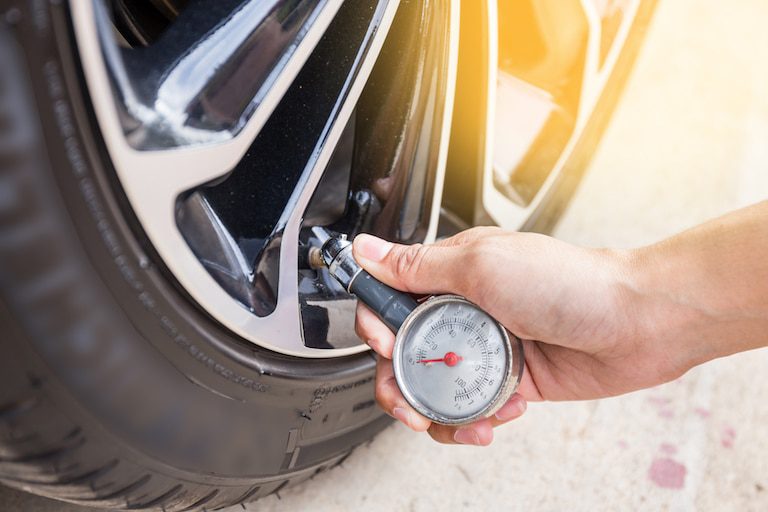How to Dispute and Remove an Accident from Your Driving Record with Ease
Having an accident on your driving record can be a major headache, affecting everything from insurance rates to job opportunities. Fortunately, disputing and removing an accident from your record doesn’t have to be a difficult process. In this article, we will provide you with step-by-step instructions on how to successfully dispute and remove an accident from your driving record with ease.
From gathering the necessary documentation to filing a formal dispute with the appropriate authorities, we will guide you through the entire process. We will also provide you with tips on how to present your case effectively and maximize your chances of having the accident removed from your record.
Whether you were not at fault for the accident or believe there was a mistake in reporting, knowing how to dispute and remove an accident from your driving record can save you time, money, and hassle in the long run. So, let’s jump in and get started on clearing your record today.
What is a Driving Record and Why is it Important?
A driving record is a documented history of a person’s driving behavior, including any traffic violations, accidents, and license suspensions. It is used by insurance companies, employers, and law enforcement agencies to assess a driver’s risk and responsibility on the road.
A driving record is important because it provides valuable information about a person’s driving habits and history.
Insurance companies use driving records to determine the cost of auto insurance premiums, with good records often leading to lower rates. Employers may request driving records for job positions that require driving, to ensure that candidates have a safe driving history. Law enforcement agencies use driving records to monitor repeat offenders and potential threats on the road.
By regularly checking their driving record, individuals can stay informed about their current standing and take steps to improve their driving habits if needed. It is important to keep a clean driving record to maintain low insurance premiums, avoid license suspension, and ensure safety on the road.
Understanding the significance of your driving record
A driving record is a comprehensive document that contains information about an individual’s driving history, including any DUI incidents or auto accidents. It typically includes details such as traffic violations, accidents, DUI incidents, points on your license, and any other incidents involving your motor vehicle. Your driving record is crucial as it provides insight into your driving behavior and reliability on the road, impacting how car insurance companies view your insurability.
How a driving record impacts your car insurance rates
Your driving record plays a significant role in determining your car insurance rates. Car insurance companies evaluate your driving history, including any DUI incidents or speeding tickets, to assess the level of risk you pose as a driver. A clean record with no accidents, traffic violations, or points on your record usually results in lower insurance premiums from car insurance companies, while a record with multiple incidents may lead to higher rates.
How insurance companies look at your driving record
Insurance companies review your driving record to gauge the likelihood of you being involved in future accidents. They use this information, including your MVR or CLUE report, to calculate your insurance premium and determine your insurability with auto insurance companies. A clean driving record is often seen as a positive indicator by insurers.
Steps to Dispute an Accident on Your Driving Record
Requesting a copy of your driving record
Before disputing an auto accident on your driving record, obtain a copy of your driving record from the Department of Motor Vehicles (DMV) or your insurance provider to check for discrepancies, including points on your record or erroneously reported property damage. This will help you identify any inaccuracies, such as wrongful points on your record or claims of property damage that need to be addressed.
Disputing inaccuracies with the DMV
If you find any errors or inaccuracies in your driving record, file a request to dispute them with the DMV and ensure a clean record online. Provide supporting evidence such as an accident report or police report to strengthen your case.
Providing evidence to support your dispute
Gather relevant documentation, such as witness statements, photos of the accident scene, or repair invoices, to substantiate your dispute. This evidence, possibly including a detailed CLUE report from LexisNexis, can help you present a compelling case to have the auto accident removed from your driving record.
Removing an Accident from Your Driving Record
Steps to take after you’re found not at-fault in a collision
If you are deemed not at fault in a collision, ensure that this information is reflected in the accident report and your driving record, especially if property damage or points on your record are involved. Work with your insurer to update your record accordingly, dispute a driving record issue, and have the auto accident removed.
Options for improving your driving record
To enhance your driving record, consider enrolling in a defensive driving course. Completing such a course can demonstrate your commitment to safe driving practices and may positively impact your record.
Effect of completing a defensive driving course on your record
Successfully finishing a defensive driving course can lead to benefits such as reducing points on your license, improving your driving history, and potentially lowering your car insurance rates with companies like State Farm.
Impact on Car Insurance Rates and Insurability
How accidents affect your insurance rate
Accidents can cause your insurance rates to increase significantly, often due to points on your record from the incident. Insurance companies view individuals with a history of accidents as higher risk policyholders, resulting in higher premiums.
Working with your insurer to resolve the accident on your record
Collaborate with your insurer or the state’s DMV to rectify any discrepancies on your driving record related to accidents, including inaccurate property damage claims or points. Your insurer can guide you through the process of disputing and removing accidents, which can ultimately impact your auto insurance rates.
Whether accidents stay on your driving record permanently
Accidents, including auto accidents, typically stay on your driving record for a certain period, which varies by state and insurance company, influencing your motor vehicle record and premiums. However, taking swift action to dispute and remove accidents can help in maintaining a clean record and potentially minimizing long-term consequences.
Additional Tips for Maintaining a Clean Driving Record
Regularly checking your driving record for accuracy
Frequently review your motor vehicle record online through your state’s DMV or insurance provider to ensure that all information is accurate and up to date. Any discrepancies or errors should be addressed promptly to maintain a clean record, including errors in your MVR or CLUE report.
Understanding the policies of your insurance company
Be familiar with the policies of your car insurance provider regarding accidents and driving records. Knowing the procedures for disputing and removing accidents, including the dispute process through the DMV or insurance, can help you navigate the process more effectively.
Taking preventive measures to avoid accidents
Practice safe driving habits, obey traffic laws, and take precautionary measures to reduce the risk of accidents. By being a responsible driver, you can proactively prevent incidents that could negatively impact your driving record.
Frequently Asked Questions
Q: How long does an accident stay on your driving record?
A: An accident typically stays on your driving record for three to five years, but this duration can vary from state to state.
Q: Will an accident affect my auto insurance policy?
A: Yes, an accident can affect your auto insurance policy, especially if you were at least partially at fault. It may lead to an increase in your premiums, especially if points for the accident stay on your record.
Q: How can I dispute an accident on my driving record?
A: You can dispute an accident on your driving record by contacting your state’s Department of Motor Vehicles (DMV) and providing relevant information such as your driver’s license number and details of the accident.
Q: What is the process to remove an accident from my driving record?
A: The process to remove an accident from your driving record varies depending on the state. Generally, you may need to file a dispute with the DMV and pay a small fee.
Q: Will a traffic ticket be removed from my record after some time?
A: Traffic tickets, including speeding tickets, usually stay on your driving record for three to five years, impacting your insurance rates. After that period, they may be removed automatically.
Q: Can I remove an insurance claim from my driving record?
A: Insurance claims can appear on your driving record, but typically not for as long as an accident. You can contact your insurance agent to inquire about the process of removing a claim.
Q: How does an accident affect the points on my driving record?
A: An accident involving a moving violation can add points to your driving record, which may impact your insurance premiums and driving privileges.


